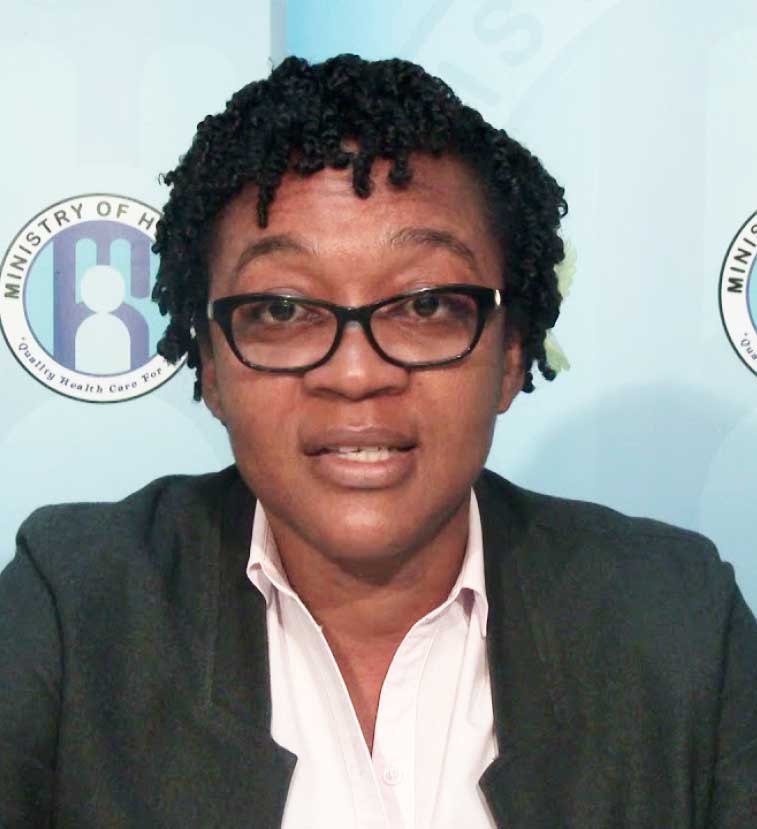More Saint Lucians are taking the COVID-19 vaccine which has pushed the percentage of the population that is fully vaccinated to 18.5 percent, a full two percent higher compared to two weeks ago when that number was at 16.1 percent.

The observation was made by Tecla Jn. Baptiste, Saint Lucia’s National Immunization Manager who stated that the safety and effectiveness of COVID-19 vaccines in preventing serious disease, hospitalizations and death cannot be over- emphasized, evidence of which is all around us.
“While the Ministry of Health, Wellness and Elderly Affairs notes an increase in the uptake of the vaccine over the last two months, the assertions put forward regarding the safety and efficacy of vaccines by a segment of the population does not go unnoted. Clearly, this is driving a level of vaccine hesitancy in the population, and affecting the uptake of the vaccines, Jn. Baptiste said.
She said that while the COVID-19 vaccines were created quickly, they were carefully tested for safety and were made using processes that had been developed and tested over many years; and are designed to make vaccines quickly in the case of infectious disease pandemics such as COVID-19. She added that the vaccines themselves were extensively tested and millions have been safely vaccinated to date.
“There have been concerns about side effects and COVID-19. COVID-19 vaccine side effects are temporary and do not mean that you are sick. COVID-19 vaccines do not contain live virus, and as such you cannot, and will not, contract COVID-19 from getting vaccinated. The symptoms, if any, that one experiences after getting vaccinated does not mean that the individual has COVID-19. It is the body’s immune system response, where the body learns to recognize and fight the COVID-19 virus. We do note that there are persons who experience prolonged symptoms and therefore encourage them to report this to their health care provider,” Jn. Baptiste said.
According to her this is part of the monitoring and evaluation process of the COVID-19 vaccination programme.
“Another frequently asked question is whether one can take the vaccine after having been infected with COVID-19, and how soon after? If someone already had COVID-19, getting the vaccine will add extra protection. While evidence suggests that there is some level of immunity for those who have been infected with COVID-19, it is not known how long that immunity lasts – how long that one will be protected from getting COVID-19 again,” she said.
“Additionally, the level of immunity provided by the vaccine after having COVID-19 is higher than that of those who had COVID-19 but not subsequently vaccinated. As of Saturday 2nd October 2021, 18.5% of the population has been fully vaccinated, accounting for 33,391 persons. 7.25 % is partially vaccinated, accounting for 13,141 persons. Of the partially vaccinated, 2,964 persons are overdue for their second dose of the vaccine, signifying an increase of over one thousand persons over a two-week period,” Jn. Baptiste said.
The Ministry of Health, Wellness & Elderly Affairs continues to appeal to people who are due for their second dose of the vaccine, to access one of the vaccination sites.
“You are only guaranteed full protection after having received the complete regimen of the vaccine. The data continues to show higher rates of hospitalization and deaths in the partially vaccinated and unvaccinated. Further, we are all looking towards the return of normal social functioning. Higher vaccine coverage means a chance to get closer to normal. Although no one knows how long the pandemic will last, we do know that everyone who gets vaccinated helps us move closer to the normal life we look forward to,” Jn. Baptiste said.










![.[L-R] Parliamentary Representative for Castries Southeast, Lisa Jawahir & Talk show host, Timothy Poleon](https://thevoiceslu.com/wp-content/uploads/2026/02/Lisa-Jawahir-Timothy-Poleon-380x250.jpg)
![Public Service and Utilities Minister Stephenson King delivered remarks [Photo credit: VP]](https://thevoiceslu.com/wp-content/uploads/2026/02/Stephenson-King-380x250.jpg)

